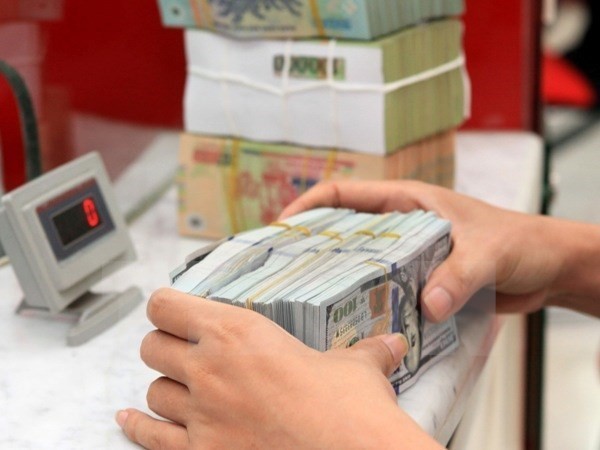
The report said following a 10 percent decline in 2016, Vietnam received approximately 13.8 billion USD in 2017, showing a year-on-year rise of 16 percent.
With this rebound, Vietnam replaced Bangladesh in the list of top 10 countries and territories having the most substantial remittances in the world.
Up to 60 percent of the remittances to Vietnam last year came from the US, while Europe accounted for nearly 20 percent of the money sent home by overseas Vietnamese. Other major sources were China, the Republic of Korea and Japan.
Ho Chi Minh City remained the biggest recipient of remittances in Vietnam, with the inflows estimated at 5.2 billion USD, up 4.5 percent against the preceding year. In the first quarter of this year alone, the city received 1.12 billion USD, an increase of 4.5 percent from the same period last year.
Last year’s remittance hike was in contrast to many predictions that the remittance to Vietnam would reduce as a result of the US immigration and interest rate policies, as well as Vietnam’s zero percent dollar deposit interest rate.
According to analysts, Vietnam’s rapid economic growth and improved business environment have enhanced investor confidence and attracted remittances into the country.
Meanwhile, some analysts believe overseas remittances will be stable, thanks to the increasingly high number of Vietnamese workers overseas, macroeconomic stability, and the flexibility of Vietnam’s monetary policy.
Overseas remittances to Vietnam have increased since 2010, reaching 13.2 billion USD in 2015. However, they unexpectedly dropped to 9 billion USD in 2016.
The remittances to the country go through four channels: commercial banks, economic institutions, customs or post. About 72 percent of the remittances go through commercial banks.
India took the top spot in global remittance recipients in 2017 with 69 billion USD, followed by China (64 billion USD) and the Philippines (31 billion USD).
With this rebound, Vietnam replaced Bangladesh in the list of top 10 countries and territories having the most substantial remittances in the world.
Up to 60 percent of the remittances to Vietnam last year came from the US, while Europe accounted for nearly 20 percent of the money sent home by overseas Vietnamese. Other major sources were China, the Republic of Korea and Japan.
Ho Chi Minh City remained the biggest recipient of remittances in Vietnam, with the inflows estimated at 5.2 billion USD, up 4.5 percent against the preceding year. In the first quarter of this year alone, the city received 1.12 billion USD, an increase of 4.5 percent from the same period last year.
Last year’s remittance hike was in contrast to many predictions that the remittance to Vietnam would reduce as a result of the US immigration and interest rate policies, as well as Vietnam’s zero percent dollar deposit interest rate.
According to analysts, Vietnam’s rapid economic growth and improved business environment have enhanced investor confidence and attracted remittances into the country.
Meanwhile, some analysts believe overseas remittances will be stable, thanks to the increasingly high number of Vietnamese workers overseas, macroeconomic stability, and the flexibility of Vietnam’s monetary policy.
Overseas remittances to Vietnam have increased since 2010, reaching 13.2 billion USD in 2015. However, they unexpectedly dropped to 9 billion USD in 2016.
The remittances to the country go through four channels: commercial banks, economic institutions, customs or post. About 72 percent of the remittances go through commercial banks.
India took the top spot in global remittance recipients in 2017 with 69 billion USD, followed by China (64 billion USD) and the Philippines (31 billion USD).
























